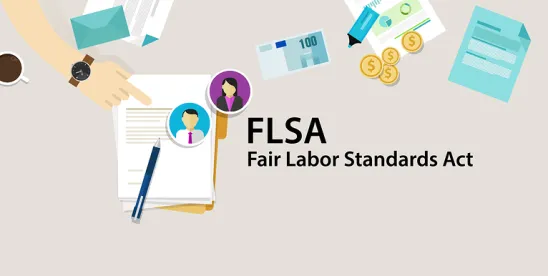On April 23, 2024, the U.S. Department of Labor (“DOL”) issued a new Overtime Rule (the “Rule”), which raises the salary threshold level for the various overtime exemptions under the Fair Labor Standards Act (“FLSA”). The DOL explained in a news release that this Rule would expand overtime protections “to lower-paid salaried workers.” As set forth below, the Rule directs that the first of the increases to the applicable salary thresholds begins on July 1, 2024.
Overtime Exemptions Generally
The FLSA requires employers to pay employees an established minimum wage (currently $7.25 per-hour, which is higher in New York State and New Jersey) plus overtime (at a rate of 1½ times the rate of pay) for all time worked past 40-hours in a week. The FLSA establishes various exemptions to this overtime mandate. The new Rule impacts those federal overtime exemptions.
The EAP Exemptions
The FLSA provides three basic white-collar exemptions to federal overtime requirements: the Executive, Administrative and Professional exemptions (collectively referred to as the “EAP” exemptions). To satisfy each exemption, the employee must receive a basic salary threshold, be paid on a salary basis, and have defined responsibilities that meet the applicable exemption tests. The new Rule raises the salary threshold for these exemptions creating an escalating step increase over time going forward. The impact of the increased threshold is important because as the minimum threshold increases, lower paid workers who previously may have been considered to be exempt will be excluded, and thus should be re-classified as “non-exempt” and entitled to overtime. Specifically, the Rule increases the salary threshold for the EAP exemptions from the current $684 per-week ($35,568 per-year) to the following escalating steps:
- On July 1, 2024, increased to $844 per-week ($43,888 per-year);
- On January 1, 2025, increased to $1,128 per-week ($58,656 per-year);
- On July 1, 2027, and every three years going forward, increases “will be updated to reflect current earning data.” The DOL intends to set the salary threshold at the 35th percentile of weekly earnings of full-time salaried workers in the lowest-wage Census Region, which is currently $1,128 per-week in the South Census Region (the south).
Notably, under the FLSA regulations, teachers, practicing medical doctors and lawyers are exempt professionals; however, there is a specific exemption from the salary threshold level and salary basis tests for those occupations, and as such, the changes described in this Alert do not apply to them.
The “Highly Compensated Employee” Exemption
The FLSA further permits an exemption from federal overtime requirements for “highly compensated employees,” who receive a high annual compensation and whose primary duty includes performing office or non-manual work and who customarily and regularly perform at least one of the exempt duties or responsibilities of an exempt executive, administrative or professional employee. The annual compensation level for highly compensated employees is currently $107,432. The Rule again establishes escalating step increases over time going forward to increase the annual compensation required for this exemption as follows:
- On July 1, 2024, the annual compensation is increased to $132,964;
- On January 1, 2025, the annual compensation is increased to $151,164;
- On July 1, 2027, and every three years going forward, the annual compensation will be increased to “reflect current earnings data”.
The Rule further explains “[w]here the annual period covers periods during which multiple total annual compensation levels apply, the amount of total annual compensation due will be determined on a proportional basis.”
Separate State Exemptions
In addition to complying with the FLSA salary thresholds for various federal overtime exemptions, employers must also be mindful of the different state salary thresholds for overtime exemptions under the state wage and hour laws. States often have their own wage and hour laws, which establish different overtime rates and slightly different overtime exemptions than the federal exemptions. For example, both New York State and New Jersey maintain higher minimum wage requirements than provided under federal law. While a state’s minimum wage requirements can be higher than the rate established under the FLSA, states’ minimum wage requirements cannot be below the federal standard. Similarly, states can and do have different overtime exemptions, which among other differences, can require higher salary thresholds than comparable federal exemptions.
New York State, for example, has executive/management and administrative exemptions, which mandate higher salary-thresholds than the federal levels. New York State currently sets these salary thresholds based upon employer size and different geographic areas. In New York City, Nassau, Suffolk and Westchester Counties the salary threshold for these exemptions for large employers of eleven or more employees is $1,200 per-week ($62,400 per-year), which will increase to $1,237.50 per-week ($64,350 per-year) beginning on January 1, 2025, and further increase to $1,275.00 per-week ($66,300 per-year) beginning on January 1, 2026. For the rest of New York, however, the salary threshold for these exemptions is $1,124.20 per-week ($58,458.50 per-year), which will increase to $1,161.65 per week ($60,405.80 per-year) on January 1, 2025, and further increase to $1,199.10 per-week ($62,353.20 per-year) on January 1, 2026. Notably, the New York State salary thresholds are all higher than the salary thresholds mandated under the FLSA. Accordingly, employers in New York State will need to comply with both the new federal salary threshold and the appropriate geographic New York State salary threshold in order to maintain the overtime exemption. In other words, New York State employers must comply with the highest applicable salary threshold.
It should be noted that New York also provides an exemption for professional employees, but this exemption does not require a specific New York salary threshold, but rather the applicable federal threshold applies. Nevertheless, to satisfy this exemption, the employee must be working in a bona fide professional capacity and have specific job duties that require a specialized knowledge and permits the exercise of discretion and judgment. Now, New York employers will need to review their professional exempt employee pay scales and consider if the new increase to the federal salary thresholds will impact those exempt designations.
To date, New Jersey has not implemented its own minimum salary thresholds for any of the exemptions it utilizes and, instead, adopts the federal salary thresholds by reference. Therefore, the increased federal salary thresholds promulgated in the new Rule will impact New Jersey employers.
Next Steps
It should be anticipated that the new Rule will face legal challenges. Indeed, when the DOL previously sought to increase the salary thresholds back in 2016, that Rule was challenged and was blocked before it was ultimately implemented at a lower threshold. As a result, the status of the implementation of the new Rule should be monitored so the employer can evaluate whether certain employees should be reclassified as non-exempt and whether those employees who continue to perform the work that justifies an exemption should receive a salary increase to satisfy the new salary thresholds.
Nevertheless, it is strongly recommended that employers begin to reassess how their employees are classified. Exempt employees must receive the required salary threshold, to satisfy both the federal and state law requirements, be paid on a salary basis and meet the applicable exemption tests for the employee’s classification. The scheduled increases are significant and ultimately will require all employees earning less than $58,656 (and likely a higher amount in future years) to be classified as non-exempt. The implications are that employers must ensure that the non-exempt employees properly record their hours worked, do not work overtime without advance approval and receive overtime when due. The potential risks of misclassification and failure to pay required overtime are extremely high under federal law, and potentially even higher under New York and New Jersey laws which have increased damages and penalties in recent years.





 />i
/>i

